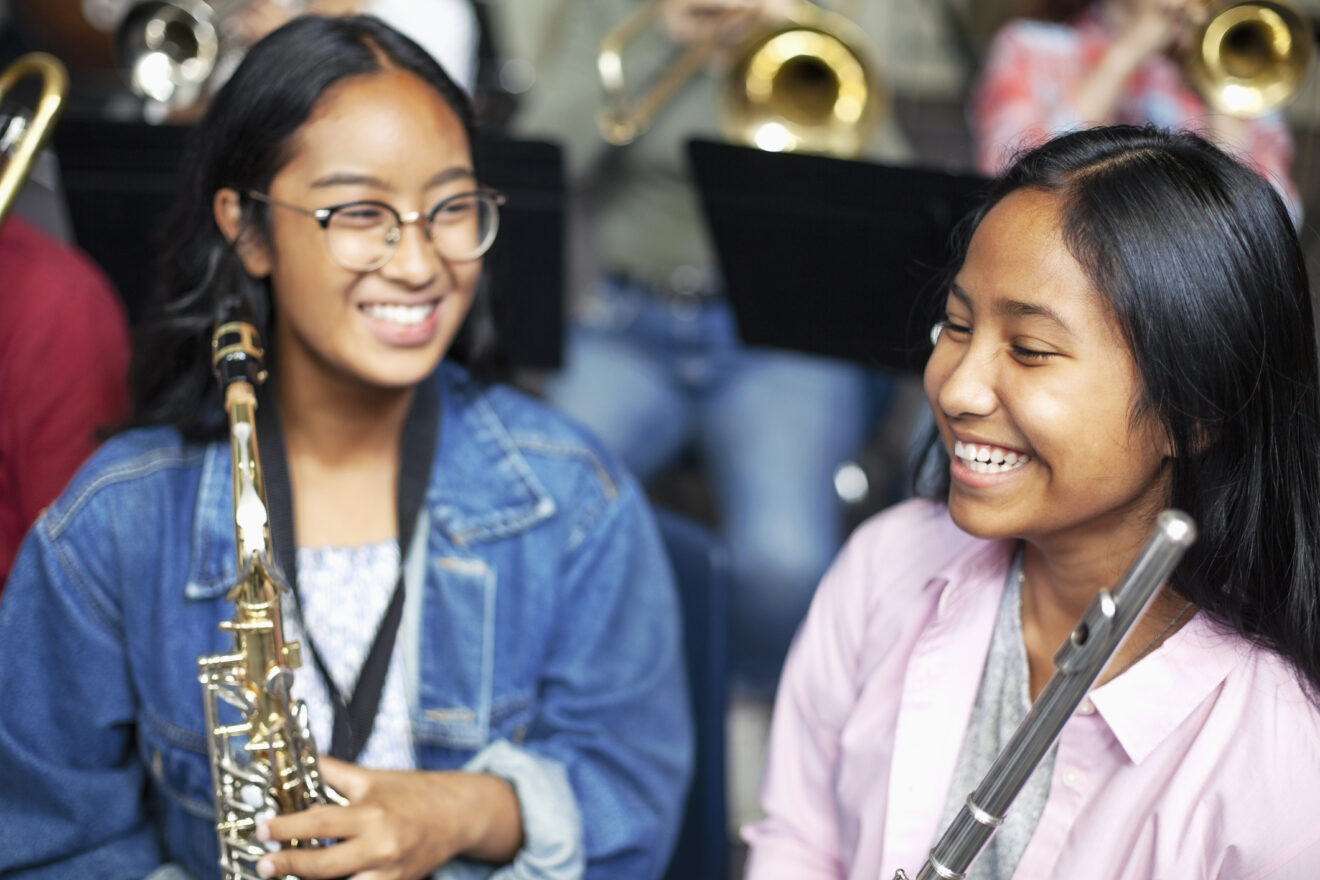Only 20 states require education in the arts for graduation, but the arts are key to recovering from COVID.

With the peak of COVID-19 being over two years ago, it can be easy for us all to believe everyone has moved past the pandemic. Businesses have revived, schools have opened up, the economy has been stable ― in fact, booming — due to high consumer demand following quarantine.
It seems, however, that some have overlooked arguably one of the most crucial parts imposing the future of the young generation: the mental impact COVID-19 has made on young people.
I am one of those young people, and, for me and probably many others like me, music and arts classes were incredibly important in helping me cope and be able to transition from online to in-person classes. Based on what my classmates and I experienced, I’m here to say that we need more music and arts in school, not less.
More schools are eliminating the arts
Sadly, though, many districts still are cutting or eliminating their budgets for their arts programs in order to support teachers and other staff. In the midst of the pandemic, performing arts competitions such as marching band performances were canceled due to the risk of transmitting COVID-19. Some schools have implemented after-school classes or clubs for children to continue with their artistic endeavors, but many have cut money allocated for the arts to support other parts of their school system in response to the pandemic. Washington Middle School, for example, was faced with protests in response to a massive budget cut of $131 million that, in part, removed jazz instruction from its school system altogether.
As a jazz student myself, the removal of such an important program from my school would leave me devastated and aimless. If music was taken away from me at such a critical period as the COVID-19 pandemic, the entire outcome of my high-school career would be abruptly changed.
What it felt like to be a student during the pandemic
After months of online school and waking up at 7 a.m. to attend my band class via Zoom, I was burnt out. I was in my room, alone, with my instrument. No band room to play in, and no classmates to play along with. Almost everyone had their camera off during class, so the morning usually started the same way as it ended: staring blankly at a dark gray screen on my laptop, discouraged, trying to practice the music that was given to me with no motivation to do so whatsoever.
I was not alone in my desperation to go out and socialize. All my peers mentioned how they felt so alone during this time, with quarantine completely isolating them from the world outside their home. If they didn’t have a supportive home environment, the situation was even worse. Little interaction. No encouragement. No help.
I can state with full confidence that many of us only had band class as their own personal safe space; their only escape was through the music they played or listened to. At my school, most of us in the band programs had been in band for years, so our familiarity with the class and the social-emotional connection we had formed with it were abruptly changed during that time of isolation. We still talked with our friends (over the phone or through FaceTime), but it didn’t feel like the same experience as it did before the outbreak.
Isolation bred fear
I remember the first day back to school in August 2022. First, it’s worth mentioning that I didn’t want to go. I was afraid of what might happen, what I might say to others. Would I get sick? Would I get my grandparents sick? Would anyone remember me? My parents, however, pushed me out the door.
I think that all of us held our breath as we walked into class on the first morning. But as I sat down to set up my instrument, I knew that this new year was going to be a fresh start — way better than what I had experienced for months prior, with life finally seeming a little less dreary.
It isn’t just for me and my fellow classmates that music plays a huge role. University of Southern California Thornton researcher Beatriz Ilari released a study this year specifically covering the importance of music in helping students recover from the pandemic.
If schools are to prioritize the mental health of their students, reforming their arts programs would make a tremendous change in their overall student well-being. California has already put into place Proposition 28, which will distribute $1 billion every year to schools across the state to fund their arts programs. With this proposition, California has made its place as the leading state to support public schools’ arts programs — whether it be visual media, performing arts or literature. California schools will now be provided with more funds to spend on art materials, as well as paying staff, which will help alleviate the shortage of school teachers.
Help students express themselves through the arts
With California setting the standard of successfully supporting arts education, other states can follow its lead. Their actions toward the arts in public schools with acts such as Proposition 28 emphasizes how important these programs are in students’ lives and how beneficial it is for students to express themselves through art. However, other states do not seem to prioritize this: 20 states in the US (including D.C.) require students to take classes regarding arts education in order to graduate, but 31 do not.
If I had not had music to help me through my experience during the pandemic, I would surely not be the same person I am now. It would have been difficult to reenter school, and it is possible I never would have. I might have ended up one of those kids who dropped out or picked online school, which would have furthered my sense of isolation.
Whether it be music, visual arts or performance, forms of creative expression are essential in students’ lives, and can dictate the outcome of their future. Making art accessible to all should be the highest priority of the country. If this can be achieved, students across the country can progress through school a little easier and can, perhaps, thrive.
Beth Harrison is a senior at Folsom High School in California. She plays the tenor saxophone, the baritone saxophone and the clarinet.
Opinions expressed by SmartBrief contributors are their own.
_________________________
Subscribe to SmartBrief’s FREE email ASCD newsletter to see the latest hot topics in education. It’s among SmartBrief’s more than 250 industry-focused newsletters.
